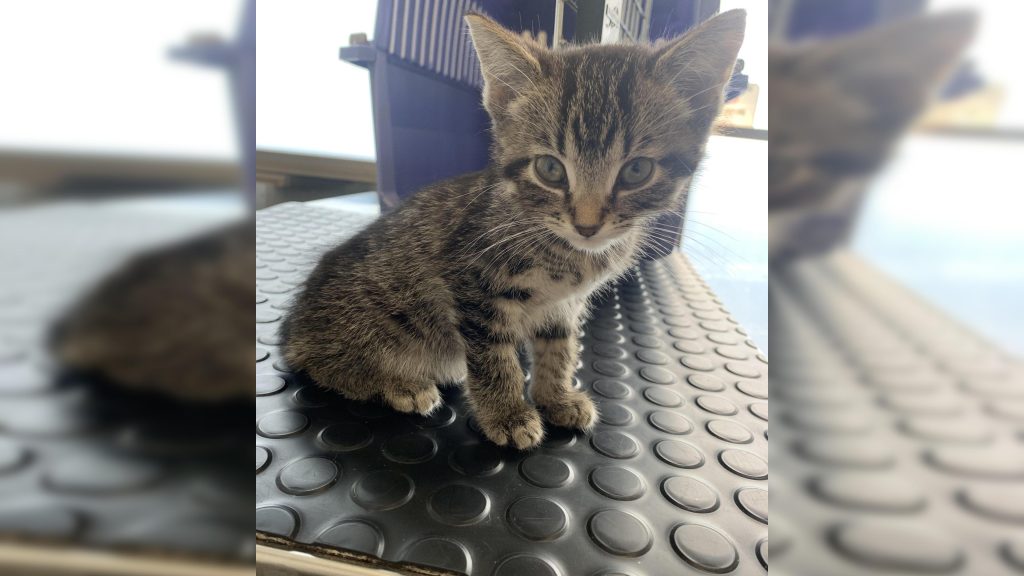A heartbreaking pet adoption experience has left one London resident questioning the health screening practices at P.A.W. (Protecting Animals Worldwide) after adopting what appeared to be a healthy kitten, only to face a tragic outcome just days later.
The adopter, who picked up two kittens from a PetSmart adoption event hosted by the Chatham-based rescue organization on July 18th, noticed one of the cats appeared unwell within days of bringing them home. What started as concern quickly escalated into a medical emergency that would end in heartbreak and significant financial burden.
After two full days of monitoring the kitten’s declining condition, the new pet parent rushed the animal to a London emergency veterinary hospital early Sunday morning. The diagnosis was devastating: severe pneumonia and severe anemia requiring a blood transfusion. Despite the emergency intervention, the kitten’s condition was too critical, and the difficult decision was made to opt for euthanasia.
The emergency veterinary care resulted in a $1,700 bill, adding financial strain to an already emotionally devastating situation. When the adopter contacted P.A.W. seeking reimbursement for the unexpected medical expenses, they were reportedly told the organization doesn’t provide sick animals and that their adoption contract only allows returns directly to the shelter.
The timing of the emergency created additional complications. The adopter explained they were unaware P.A.W. was open on Sundays, and with the shelter not opening until noon, they made the decision to seek immediate emergency care rather than wait several hours while the kitten’s condition potentially worsened.
According to the adopter’s account, P.A.W. representatives dismissed their concerns with what they described as a particularly callous response: “Well, that’s adoption, it’s on you.” This interaction reportedly caused the grieving pet parent to lose their composure during what was already an emotionally charged conversation.
The incident has sparked broader discussions about adoption practices and health screening protocols. Some veterinary experts note that conditions like pneumonia can develop rapidly in young animals, sometimes within 24-48 hours, and can result from various factors including exposure to foreign objects or environmental stressors during transport or housing changes.
However, this isn’t the first time P.A.W. has faced criticism from adopters. Other local residents have shared similar experiences, including reports of animals with various health issues ranging from parasitic infections to improperly diagnosed conditions. One person described adopting a kitten that required hundreds of dollars in treatment for worm infections and other complications, while another reported issues with a cat suffering from ringworm.
The rescue organization, which operates out of Chatham but holds adoption events in London through PetSmart partnerships, has also faced criticism in local online communities. Multiple residents have referenced ongoing complaints about the organization’s handling of sick animals and their policies regarding veterinary reimbursement.
Adding another layer to the controversy, some community members have reported discriminatory practices, with one couple claiming P.A.W. “ghosted” them after discovering they were a same-sex couple seeking to adopt.
The adoption process typically involves animals being housed at partner locations like PetSmart, where store staff often handle day-to-day care. This arrangement can sometimes create gaps in communication between the rescue organization and the retail location regarding an animal’s health status.
For the grieving adopter, the loss extends beyond financial concerns. They expressed particular anguish about the kitten’s suffering and their belief that the animal deserved better care and a chance to grow up with his sibling in a loving home.
The incident has prompted discussions among local pet adoption communities about the importance of understanding adoption contracts, emergency veterinary policies, and the need for transparent communication between rescue organizations and adopters. The story was initially shared in local online forums, where it generated significant discussion about experiences with various rescue organizations in the region.

